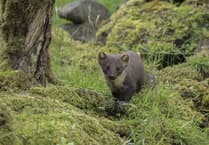In Gallup’s latest “Hope Index”, which polls what people feel about the year ahead, ‘pessimists exceed optimists by the largest margin since the index launched’.
Not surprisingly, 45-64 year olds are less hopeful compared to younger groups, but I was surprised to learn that a significantly higher proportion of those living in a city are more hopeful about the coming year, than those living in villages and rural areas. And men are slightly more hopeful than women.
I am currently reading ‘FEELING BLAH?’ by Tanis Carey who introduces us to ‘anhedonia’ – derived from the Greek for ‘without pleasure’ and defined as ‘losing the ability to get pleasure from things you used to enjoy.’
Psychologist Adam Grant explains anhedonia by reflecting: ‘It wasn’t burnout — we still had energy. It wasn’t depression — we didn’t feel hopeless. We just felt somewhat joyless and aimless. … It feels as if you’re muddling through your days, looking at your life through a foggy windshield.’
It seems that there are numerous reasons for anhedonia, from the aftermath of COVID 19 and the cost of living crisis to the menopause and poor nutrition. It’s well worth a read and also worth remembering that whilst maybe not every day is good, there is good in every day.
Anyway after that ‘deep’ introduction to a gardening column, rest assured that I still have hope that the seeds that I sowed last week – beetroot (again) wasabi rocket (new) and Greek basil (in a pot) will come to fruition before the growing season slows or the rabbits find them. (Good luck with the wasabi rocket, bunnies!)
And I also have high hopes that the salvias I planted amongst a clients beloved roses last week will help to keep the roses healthy and happy. This companion planting is recommended by Sarah Raven who writes, ‘Salvias and roses are a very beneficial planting duo. One of the things that we’ve experimented with our roses a lot is trying to protect them against blackspot and mildew without using chemicals, and we’ve had huge success with underplanting our roses with salvias, particularly the microphylla, the small-leaved varieties, and as I stand here I can, I’ve crushed a leaf or something because I can smell a sort of slightly, not acrid but really quite a pungent smell that is definitely slightly sulphurous, and of course sulphur is a fungicide, and my belief is that these salvias have sulphur in their scent profile, and when they get hot they warm up and they release that and they just give this whole rose garden sort of puffs of natural, home-grown fungicide, and keep our roses pretty pristine, so I just thoroughly recommend it.’
I have always been fascinated by companion planting and wonder why more people don’t do it. Granddad always used to include rows of Tagetes patula (French marigold) in his vegetable beds, not to look pretty but to do a job. It is a great plant for killing perennial weeds as it secrete a chemical through it’s roots which has a herbicidal effect and apparently even works well on tough garden weeds. The results won’t be visible immediately, and the process will have to be repeated year after year, but it is a great – and pretty - alternative to chemical weed killers.
Tagetes also emits a chemical called ‘limonene’, which works as a very strong repellent against most flying insects and therefore protects crops. Quite incredible to think that just one plant can act as a weedkiller and an insecticide – but it’s how nature rolls! You can also buy tabs of the limonene in isolation, which is naturally extracted from the tagetes and works as an effective deterrent in greenhouses. As a big fan of essential oils, I wonder if it would work to repel flies in the house or around horses, or midges and mosquitoes when camping or being outdoors in the evening.
Other essential oils which are supposed to help to repel unwanted insects include peppermint, lavender, eucalyptus, lemon and Greek basil. Greek basil has a distinctive lemony scent, and is widely used as a mosquito deterrent in vegetable plots in the Mediterranean, where it’s used to under-plant aubergines and peppers. Although the mosquitoes hate it, the scent naturally draws in bees, butterflies, and hoverflies with its tiny flowers and is great for pollination. Nature at it’s best.





Comments
This article has no comments yet. Be the first to leave a comment.